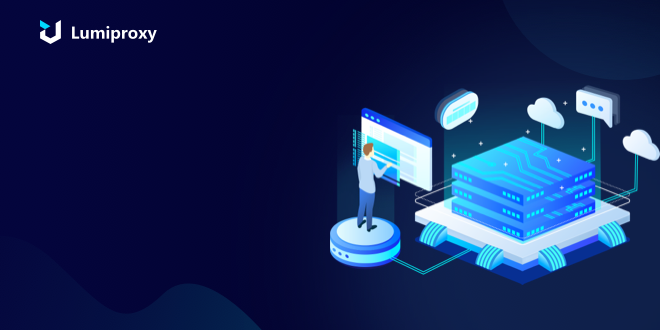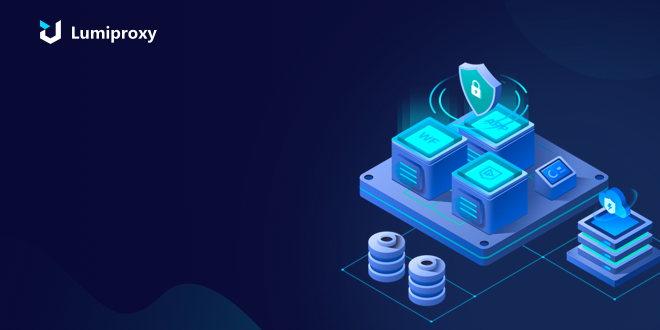In today's competitive e-commerce marketplace, understanding and accessing critical e-commerce data is vital to a company's success. However, if a company doesn't use IP proxies to manually collect e-commerce data points, such as product pricing among competitors, consumer reviews, sales and point-of-sale data across local and different platforms, it can lead to a number of business risks in addition to a difficult and slow process.

First, risks of not applying IP proxy
1. Incorrect competitor pricing
When you do not have timely access to correct competitor pricing, you are exposed to pricing strategy risks. Competitor product pricing tends to change dynamically and may change faster than you can manually collect data. If you rely on outdated or inaccurate competitor pricing data, you will not be able to develop an accurate pricing strategy. This can result in your products being overpriced or underpriced, impacting sales and market share. Consumers tend to choose reasonably priced products rather than return to an "overpriced" digital retailer.
2. Lack of timely access to consumer reviews
Consumer reviews are important to understand the quality of your competitors' products and services. Reviews can help you gain insight into your competitor's consumer pain points, product strengths and weaknesses, and more. For example, if a competitor's product is difficult to assemble, you can offer free assembly with every purchase to attract more consumers. However, if you don't have access to your competitors' consumer reviews in a timely manner, you won't be able to accurately understand market demand and consumer feedback. This may result in your business strategy not being adjusted in a timely manner and missed opportunities to improve sales and user experience.
3. Missed opportunities for sales and point-of-sale data
Sales and point-of-sale data are important indicators for understanding market trends and consumer behavior. By analyzing sales data, you can understand which products are favored by consumers in the current market, so you can adjust your product mix and production plan. And point-of-sale data can help you understand consumer buying habits and preferences so you can optimize your marketing strategy and sales channels. However, if you can't get these data instantly, you will miss a lot of consumer hotspots and business opportunities.
Second, the importance of IP proxy for collecting e-commerce data
1. Privacy protection and anonymity
Using IP proxy can effectively protect the privacy and anonymity of enterprises. When collecting e-commerce data, enterprises may need to visit competitors' websites, social media platforms, e-commerce platforms, etc. to obtain key information. By using an IP proxy, the real IP address of the business will be hidden, thus protecting the identity and privacy of the business. In this way, enterprises can freely access and collect data without revealing their identity, reducing the risk of being tracked and interfered by rivals.
2. Exchange data for multiple geographic locations
IP proxies can help organizations access e-commerce data from multiple geographic locations. Markets and consumer behaviors may differ from region to region, and understanding these differences is critical to developing geographic marketing strategies and adjusting product positioning. By using IP proxies, businesses can simulate IP addresses in different geographic locations, access e-commerce platforms and websites in different regions, and collect more comprehensive data. In this way, companies can gain deeper market insights and consumer insights, providing more accurate data to support business decisions.
3. Obtain key data from competitors
Understanding competitors' product pricing, promotional strategies, sales data, etc. is an important part of developing a competitive strategy. By using IP proxies, enterprises can simulate different user identities and geographic locations to access competitors' websites and e-commerce platforms and obtain key competitor data. In this way, enterprises can conduct in-depth competitive analysis and comparisons, identify competitive strengths and weaknesses, and formulate market strategies accordingly.

4. Large-scale data collection and automated processing
The scale of e-commerce data is huge and growing, and manually collecting and processing data becomes very time-consuming and error-prone. By using IP proxies, enterprises can realize large-scale automated data collection and processing. IP proxies can simulate multiple users visiting multiple websites and platforms in parallel, quickly collect a large amount of data, and organize and analyze it through automated data processing tools. In this way, organizations can process data efficiently, gain insights quickly, and make timely adjustments to business strategies and operational decisions.
To summarize, there are risks associated with collecting e-commerce data without using agents. The process of collecting data manually is difficult and slow, and can easily lead to outdated or inaccurate information, which can affect your business decisions and market competitiveness. To avoid these risks, it is recommended that organizations use IP proxies to collect e-commerce data automatically.IP proxies can help you obtain accurate and timely data to improve business efficiency and competitive advantage. By choosing a trusted IP proxy service provider and configuring and managing the proxy system appropriately, you can effectively minimize risks and achieve better business results.
























 Deutsch
Deutsch